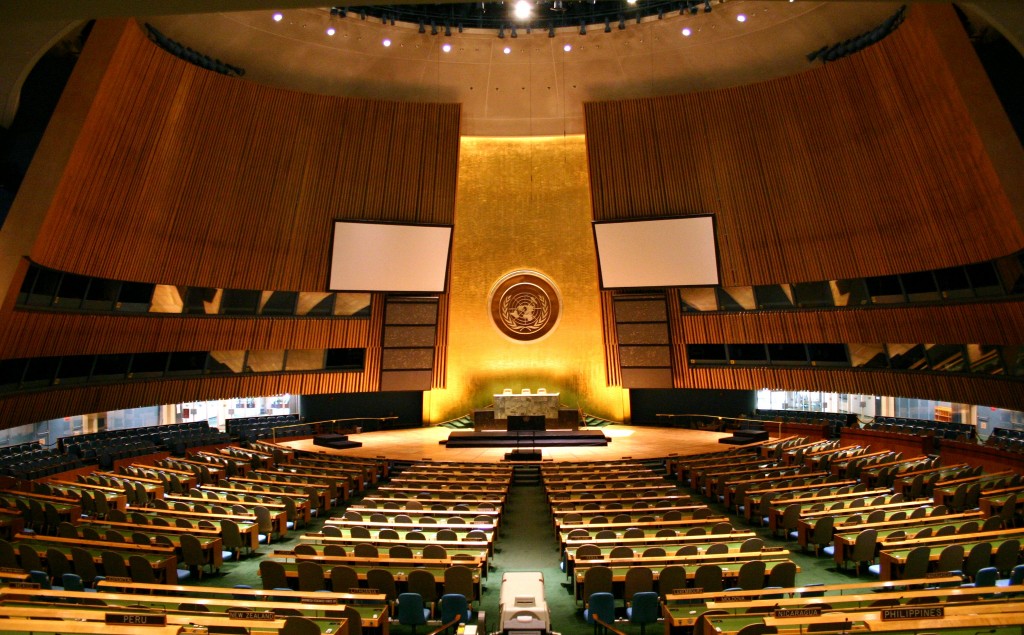Guy S. Goodwin-Gill: on power, refugees and modern international law (Part 1) Interview
Interviews, New in Ceasefire - Posted on Wednesday, January 18, 2012 16:06 - 1 Comment
By Musab Younis

Dadaab, in the North-Eastern Province in Kenya, is a semi-arid town that hosts what Aljazeera calls “the world’s biggest refugee camp” near the Kenyan-Somali border. Over 370,000 people live there. In October, two Médecins sans Frontières workers at the camp were kidnapped (by “suspected Somali militants”). A couple of weeks ago, a member of the Lutheran World Federation peace committee was shot dead there. These incidents have generated a few lines at the margins of the press, but in general few non-specialists in the West have heard of Dadaab or the Ifo camp it contains.
Refugee issues continue to form the core of twenty-first century political life, from the Palestinian diaspora and the recent displacement in Libya to the lives of the many thousands in Dadaab. Given that the main UN Convention on the status of refugees was signed in 1951, how well is the world currently dealing with these issues? How has the ‘war on terror’ impacted on the ability of people to escape war or persecution? Is our current definition of a refugee outdated?
Few people are better placed to answer questions like these than Professor Guy S. Goodwin-Gill, who is known to students of international law as the co-author of the seminal and authoritative book The Refugee in International Law. For twelve years (1976-1988) he served as Legal Adviser in the Office of United Nations High Commissioner for Refugees (UNHCR). Currently, he is a Senior Research Fellow at All Souls College, Oxford, as well as a Professor of International Refugee Law. He also practices as a barrister from Blackstone Chambers, London, and has been involved in high-profile international legal cases including the Israel ‘Wall’ case at the International Court of Justice.
We spoke in his rooms at All Souls College on a range of topics, from Palestine at UNESCO to the use of drones. Here, in the first of two parts, Goodwin-Gill discusses his own path to a career in international law, the circumstances of the drafting of the 1951 UN Convention on refugees, the inevitability of migration, and the impact of regional agreements.
 MY: How did you become involved in a career in international law?
MY: How did you become involved in a career in international law?
GGG: I often get asked that question, and the only answer I have is a chapter of accidents. I did law because I’d had enough of languages, and because in the sixties doing law didn’t necessarily confine you to a legal career at all – here in Oxford it was an arts degree. So I did law for want of something else to do, but my college, Wadham, steered steered all us law students into eating dinners’, which meant going to one of the inns of courts and becoming eligible to take the Bar exams. When I’d done my finals, I discovered the only thing I was really interested in was international law. I had a year off before going back to Oxford to do post-graduate work, so I sat the Bar exams, and then two years later took up a teaching post at the College of Law in London. Being a barrister was a condition of employment, so a great aunt put up the money and I was duly called to the Bar.In 1976, for various institutional and academic reasons, I was looking to move out of the College of Law. A job came up at the UN High Commissioner for Refugees, and I was with the UNHCR for twelve years. I left initially on a year’s leave of absence to set up the International Journal of Refugee Law and just never went back. Eventually in 2000, I did what I hadn’t done in the seventies, which was ‘pupillage’, to qualify myself fully as a barrister, and since then, I’ve been a non-resident member of Blackstone Chambers. So there was nothing planned – it just happened…
MY: You’ve established yourself as an expert on refugee law, and recently advised on a case regarding the application of the 1951 UN Convention Relating to the Status of Refugees. Is that convention sufficient to regulate modern-day refugee flows?
GGG: Blair often said it wasn’t. He said it was a treaty drafted at the time of the Cold War for other purposes. It was certainly drafted in 1951, but it drew on thirty or so years of experience of international involvement in refugee issues. It was drafted when security was a concern – maybe different aspects of security – but the drafters were careful to make sure the definition of a refugee a) was not too broad, and b) had security exceptions in it. So war criminals were excluded, those who were serious non-political criminals were excluded, those who had committed acts contrary to the purposes and principles of the UN were excluded. It certainly remains up to date in that regard: it does make provision to protect state interests.
What it doesn’t do, and was never intended to do, is regulate large-scale migration or mixed flows of migrants and asylum seekers. Insofar as it only covers a small part of the picture it still remains perfectly valid. We can all understand a refugee as someone who, as defined in the convention, has a well-founded fear of persecution, on certain grounds like race, religion, social group, or political opinion. But we’ve also come to accept that there may be others out there who can’t squeeze themselves into that relatively narrow definition, but who should be protected because they’re fleeing conflict, or serious discrimination, or perhaps even now – as we’re beginning to appreciate – they’re fleeing the consequences of natural or man-made disasters.
That’s not to say they should all be treated equally or have the same rights accorded to them as if they’d been granted asylum, but they are nonetheless people in need of protection. So our sense of protection has strengthened, particularly in view of our better understanding today of what it means to have human rights, and to protect human rights. And human rights protection has helped to complement the 1951 convention, which is something that governments have tried to resist at some times, but have now come round to accept – namely, that irrespective of the well-foundedness of fear of persecution, someone who faces inhuman treatment of torture, regardless of intent or motive, or who is stateless, or a child in flight, or the victim of trafficking, should also be protected.
MY: In the next couple of decades, what do you think will be the main challenges facing refugee law?
GGG: Some of the main challenges are those that states have created for themselves. We’ve had the 1951 convention for sixty years now, and one would have expected states to have got much better at managing refugee movements, to have come to recognise that this is not a temporary phenomenon, that refugees and forced migrants are not simply going to fade away with time. They will be there. But governments have not learnt that lesson, as likewise for many years they haven’t been prepared to deal with migration, except from a sovereigntist confrontational perspective. ‘We decide who comes in, and if that person is not a citizen, then you – the other state – must take them back.’ Well, that sort of approach doesn’t really work. Many developing countries, for example, benefit greatly from remittances sent back from their citizens abroad, citizens who may be in other countries regularly or irregularly.
So there’s no necessary interest in such states coming to the table and playing the migration game according to the sovereigntist perspective. They need help – and remittances, we know worldwide, contribute far more to national economies than foreign aid and development. States, though, have not been prepared generally to approach migration in a cooperative way, to recognise that sending states do have interests, as well as receiving states, and to try to forge some common understanding and arrangements for dealing with migration in partnership with states of origin. And one of the hardest things will be for states to do a 180 on this, to come to recognise that actually there is another dimension to the movement of people, which is only going to be better managed through better, more effective, and more equitable partnerships with sending countries.
The EU is certainly trying to do deals, and individual member states have tried to do deals, with sending and transit states in North Africa – but these have scarcely been equitable. And it’s only when we see some equity introduced into the balance that we’re going to get to a system of better management. We’ll never have perfect management, because human migration is not a problem that can be solved, it’s not a tap that can be turned off and on at will. It’s a phenomenon with which we have to learn to live.
One of the most interesting statistics – they only really started counting seriously in the sixties –shows that there’s a fairly steady percentage of world population who live in countries other than those in which they were born. It’s between 2.3 and 2.9 percent – quite a big gap, admittedly – but it’s a steady percentage of a total population that is nonetheless growing. So we’re always going to have a certain number of individuals amongst us who are effectively migrants. They may be regular, they may be irregular, but that’s the reality.
MY: What do you think the effect of increasing regionalisation will be on refugee law?
GGG: I think there are pluses there. For example, if you have regional agreement on freedom of movement of workers, for example, you can, without thinking about it, also provide solutions to those who might be facing political or racial problems in their country of origin. For example, in West Africa, there is some evidence that suggests that without actually going down the formal refugee protection path, the provisions on movement of labour are actually providing a safety valve for those with local difficulties in their country of origin. Europe is a bit of special case, but we have a situation of a regional group, 43 of which are bound by the European Convention of Human Rights, 27 of which are members of the European Union. And that too can contribute to meeting migration and potential refugee-type pressures.
For the second part of this interview – on terrorism, Palestinian statehood, and targeted assassinations – click here.
1 Comment
usman kabir


aoa
I am from UNHCR Pak and would like to congrat on carrying out this wonderful interview.
regards,
usmankabir at hotmail. com